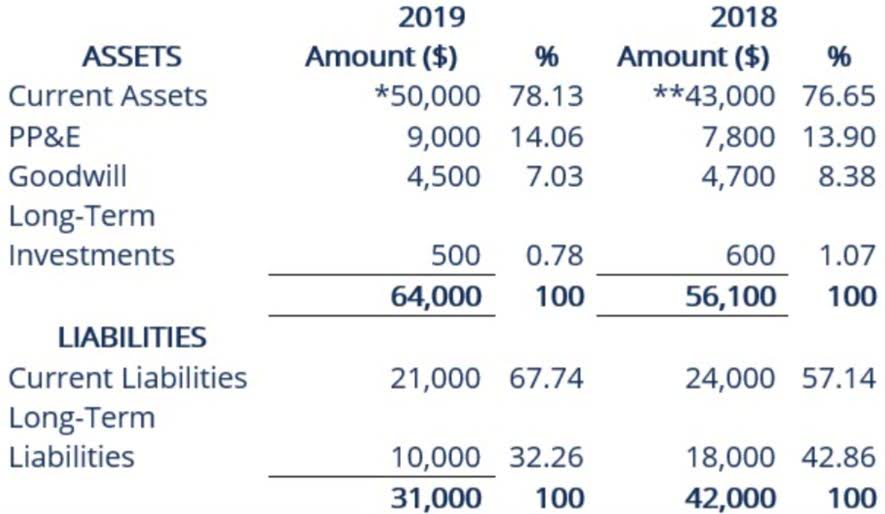Accounting Laws And Regulations
12/04/2024 22:35

One of the most important reasons for maintaining statutory compliance is to avoid penalties, fines, or legal actions. Non-compliance can result in serious legal consequences, including fines, shutdowns, and even revocation of business licenses. Prepare financial statements following accepted accounting principles such as IFRS or GAAP, as required by law.
Consequences of Failing to Meet Obligations
UK businesses must produce financial reports that adhere to either FRS contribution margin 102 (for smaller entities) or IFRS (for larger or listed companies). Even experienced international companies encounter specific challenges when adapting to French financial reporting requirements. Balance sheets, income statements, cash flow statements, shareholder equity statements, footnotes describing the organization’s accounting principles, and notes on related party transactions are examples of statutory reports. GAAP standards are designed to ensure that all British businesses produce their financial statements in a way that is open, comparable and consistent. FRS, meanwhile, clarifies how businesses should account for specific transactions under UK GAAP.
Reporting Deadlines: When and What to Report

The nature of the work that you do requires that the accountancy sector is highly regulated statutory reporting and that there are a wide range of laws that those in the profession must abide by. Understanding these requirements takes time and effort – but is essential for maintaining regulatory and legal compliance, and for allowing you to continue practising. It ensures that businesses can operate without disruptions, avoiding issues that arise due to violations of labor laws, tax rules, or health and safety regulations.
Timeline for Filing and Reporting
The maximum payment period entered may be the only payment period longer than the standard which the business has agreed during the reporting period; or may have been required by or specially agreed with the supplier. Where the maximum payment period entered into was unusual for the business, an explanation about why the terms were different may be included. The maximum payment period is the longest period for payment that a business has agreed to in a qualifying contract entered in the reporting period. All payments that are made under qualifying contracts during the reporting period must be included.

Filing Deadlines & Submission Procedures
Choose flexibility with various operational delivery models and utilise translation features to prepare financial statements in English. The first critical step involves identifying the relevant laws and regulations that mandate statutory reporting in a specific jurisdiction. These regulations may vary across regions and industries, so it’s vital to research and grasp the specific requirements applicable to your organisation. Overlooking statutory reporting requirements can lead organisations down a perilous path, fraught with legal entanglements, reputational setbacks, operational hurdles, and financial distress. Furthermore, if a company adheres to specific regulations, it may be required to submit environment, social, and governance (ESG) reports, which outline its sustainability practices and impact on various stakeholders. These documents are becoming increasingly significant in the current business landscape, where corporate responsibility is in the spotlight.
- These institutions faced fines, reputational harm, and operational limitations as a direct result of failing to meet compliance standards.
- Successfully overcoming these challenges requires a proactive approach, thorough knowledge of UK regulations, and the implementation of robust financial processes to ensure ongoing compliance and operational efficiency.
- This comprehensive approach ensures that businesses have a single, reliable partner capable of managing multiple operational requirements, helping them avoid the need to seek different providers for separate services.
- If the business does not always use the same standard percentage rate, then the ‘standard percentage rate’ is the most frequently used percentage rate.
- It pays court fees on behalf of a client however as Legal Firm A does not have a contract with the court, it does not report on this payment to the court.
- Setting reminders ahead of these deadlines can help ensure that no critical dates are overlooked.

These obligations are governed by a legal framework, primarily the Companies Act 2006, and failure to comply with these obligations can have serious consequences. This article aims to provide a comprehensive understanding of the statutory obligations that UK companies must fulfill and the implications of non-compliance. Most charitable companies are limited by guarantee and formed and registered under CA 06, and so will have a duty to report if they meet the criteria for a ‘qualifying company’ in the regulations. Businesses should report at individual entity level, for example, if there are 2 businesses within a group that qualify, they must report on their payments under qualifying contracts between one another. Company B receives an invoice from Supplier C on the 8th of the month, and therefore pays the invoice on the 25th of the following month, 48 days after receiving the invoice. Company B would therefore have to include this invoice in its calculation of the percentage of invoices not paid within the agreed payment period (because it was paid 18 days after the end of the contractual period).
- In addition to technology, businesses will need to remain adaptable to changes in the compliance landscape.
- Compliance safeguards against the repercussions of inaccurate financial reporting, preventing confusion among stakeholders.
- With additional data being reported, the public is now aware of more of the internal operations that used to be behind the curtain.
- Furthermore, enterprises subject to specific sector regulations may also have to meet enhanced reporting requirements or deadlines imposed by their respective governing bodies.
- Such legal entanglements not only drain resources but may also tarnish the company’s reputation, making it less attractive to investors and business partners alike.
- Disclosure of financial statements vary for each with more detailed disclosures for larger entities and simplified accounts for small businesses.
- Additionally, an Appointed Actuary must submit a formal opinion on the adequacy of the company’s reserves.
The centerpiece of the filing is the statutory balance sheet, which separates assets into “admitted” and “non-admitted” categories. This is accompanied by a statutory https://www.6minutes.net/learn-accounting-online-for-free/ statement of income, which reflects the conservative revenue and expense recognition rules of SAP. A third statement, the statement of capital and surplus, is of particular interest to regulators as it details the changes in the company’s net worth. A defining feature of SAP is its treatment of assets, specifically the distinction between “admitted” and “non-admitted” assets.
The Role of Technology in Streamlining Compliance
The legislation does not stipulate that calculations of length of time should only consider working days. The turnover threshold will be £49.5 million (£54.0 million divided by 12 months, multiplied by 11 months). If the business had a financial year of 380 days, the threshold would be a rounded £56.2 million (£54.0 million divided by 365 days, multiplied by 380 days). It is also agreed that invoices must be received by the 1st of the month in order to ensure payment in that month.

Payroll Management for Small Businesses: Tips for Smooth and Compliant Payrolls
- Businesses operating in France must prioritize understanding and adhering to financial reporting and compliance requirements to safeguard their interests and maintain their credibility within the marketplace.
- This oversight extends to enforcing penalties for non-compliance to reinforce a culture of accountability among financial firms.
- In South Africa, companies are mandated to adhere to specific financial disclosure requirements that are integral to ensuring transparency and accountability in their operations.
- Furthermore, if a company adheres to specific regulations, it may be required to submit environment, social, and governance (ESG) reports, which outline its sustainability practices and impact on various stakeholders.
- Clarity should be the priority when producing reports for submission so that regulators and other stakeholders can quickly comprehend the information provided.
- Failure to comply not only results in legal ramifications but can also have lasting effects on a business’s reputation and operational capabilities.
One such report is the financial statement, a comprehensive disclosure of financial information. Beyond the main financial statements, statutory reports require numerous supporting schedules that provide granular detail on specific accounts. For an insurance company, this includes investment schedules that list every security owned, detailing its cost and market value. Assembling a statutory filing requires a specific and highly detailed set of information that goes beyond standard financial reporting. The package is built around core financial statements prepared according to statutory rules, which are supported by extensive schedules and narrative disclosures. Companies are required to file an annual income tax return, using Form 1120 for corporations, by the 15th day of the fourth month after their fiscal year ends.

 Máy nước nóng năng lượng mặt trời Solarcity 340 lit
Máy nước nóng năng lượng mặt trời Solarcity 340 lit  Máy Nước Nóng Năng Lượng Mặt Trời Ống Dầu 280L
Máy Nước Nóng Năng Lượng Mặt Trời Ống Dầu 280L  Máy Nước Nóng Năng Lượng Mặt Trời Ống Dầu 200L
Máy Nước Nóng Năng Lượng Mặt Trời Ống Dầu 200L 








